As a fitness professional and an exam candidate, there is no way of getting around the fact that you need to know your anatomy! Understanding how the body moves and creates movement with the muscles is a huge part of the job. In an earlier blog, we looked at how to study anatomy. We then started breaking down each body part, with the last blog looking at the muscles that move the scapulae.
Here, we will look at the muscles that move the arm at the shoulder, elbow, and wrist joints.
Shoulder Joint
The glenohumeral joint—commonly referred to as the shoulder joint—consists of the attachment of the humerus bone to the scapula. Many actions occur at this ball-and-socket joint.
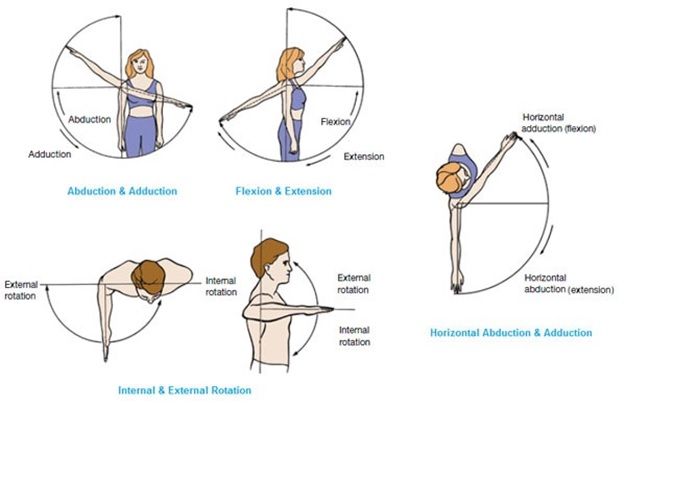
|
Action of the Shoulder |
What the Action Looks Like (Try It Yourself!) |
Primary Muscles |
|
Shoulder abduction |
Lift your arms out to the side |
Deltoid: all fibers and supraspinatus |
|
Shoulder adduction |
Lower your arms to your side |
Pectoralis major and latissimus dorsi |
|
Shoulder flexion |
Lift your arms in front of you |
Pectoralis major, and anterior fibers of the deltoid |
|
Shoulder extension |
Return (lower) your arms from shoulder flexion or lift your arms behind you |
Latissimus dorsi, teres major (“little lat”) |
|
Internal shoulder rotation |
From the anatomical position, rotate your arm so that the elbow faces forward. |
Subscapularis |
|
External shoulder rotation |
From a position of internal shoulder rotation, rotate your arm so that the elbow faces backward. Also, anatomical position requires the shoulders to be in external rotation. |
Infraspinatus and teres minor |
|
Horizontal abduction |
For the start postion, lift your arms in front of you. The action occurs as you then move your arms out to the side. |
Latissimus dorsi and posterior fibers of deltoid |
|
Horizontal adduction |
From the starting position, lift your arms out to the side. The actions occurs as you then move your arms in front of you |
Pectoralis major and anterior fibers of deltoid |
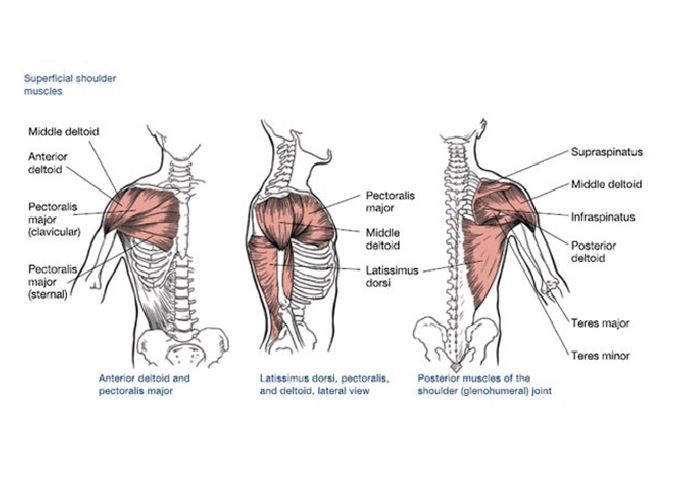
Elbow and Wrist Joints
The elbow joint consists of the humerus, radius and ulna bones. The two main actions at the elbow are flexion and extension. The wrist joint consists of the distal ends of the radius and ulna and the carpal bones of the hand. The two main actions of the wrist are flexion and extension.
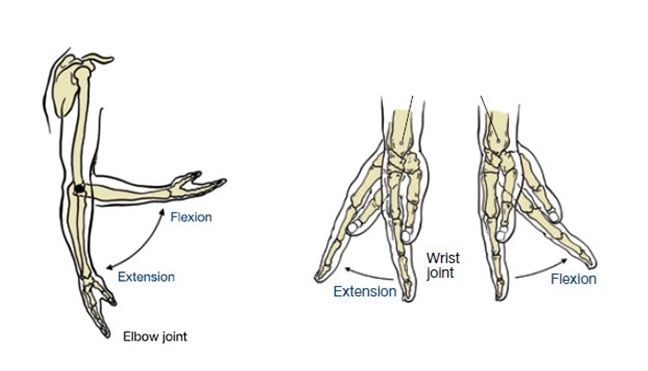
|
Action of the Elbow and Wrist |
What the Action Looks Like (Try It Yourself) |
Primary Muscles |
|
Elbow flexion |
Bend your elbow |
Biceps brachii |
|
Elbow extension |
Straighten your elbow |
Triceps brachii |
|
Wrist flexion |
Bend your palm toward your forearm |
Wrist flexors |
|
Wrist extension |
Bend the back of your hand toward your forearm |
Wrist extensors |
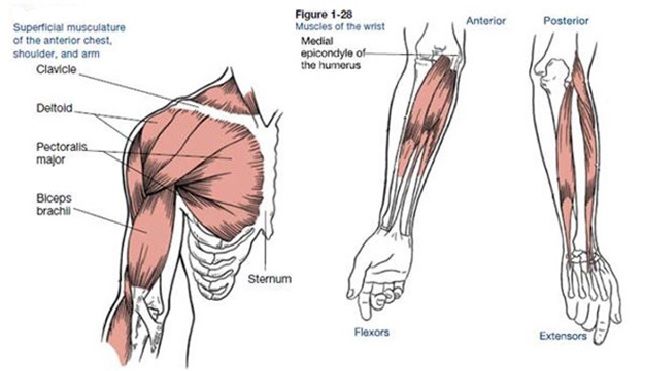
A helpful way to learn anatomy is to move and mimic the actions for the muscles you are learning that week. Look at the picture of the muscle, find it on your body, and picture how it is contracting as it produces its associated movement or movements. That is, contract the muscle you are reviewing and complete the different actions that the muscle is capable of making.




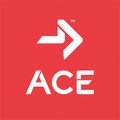 by
by 










 by
by